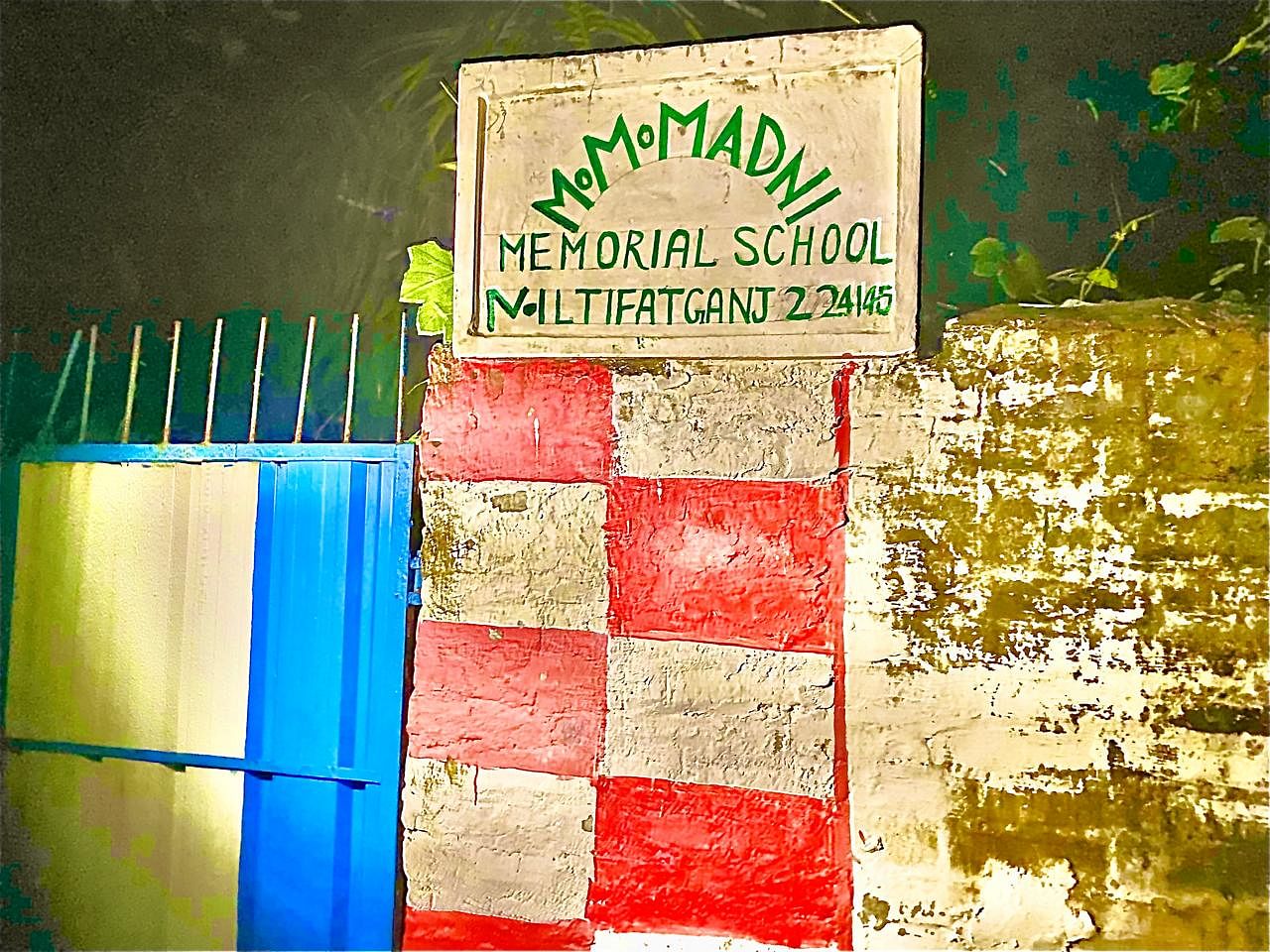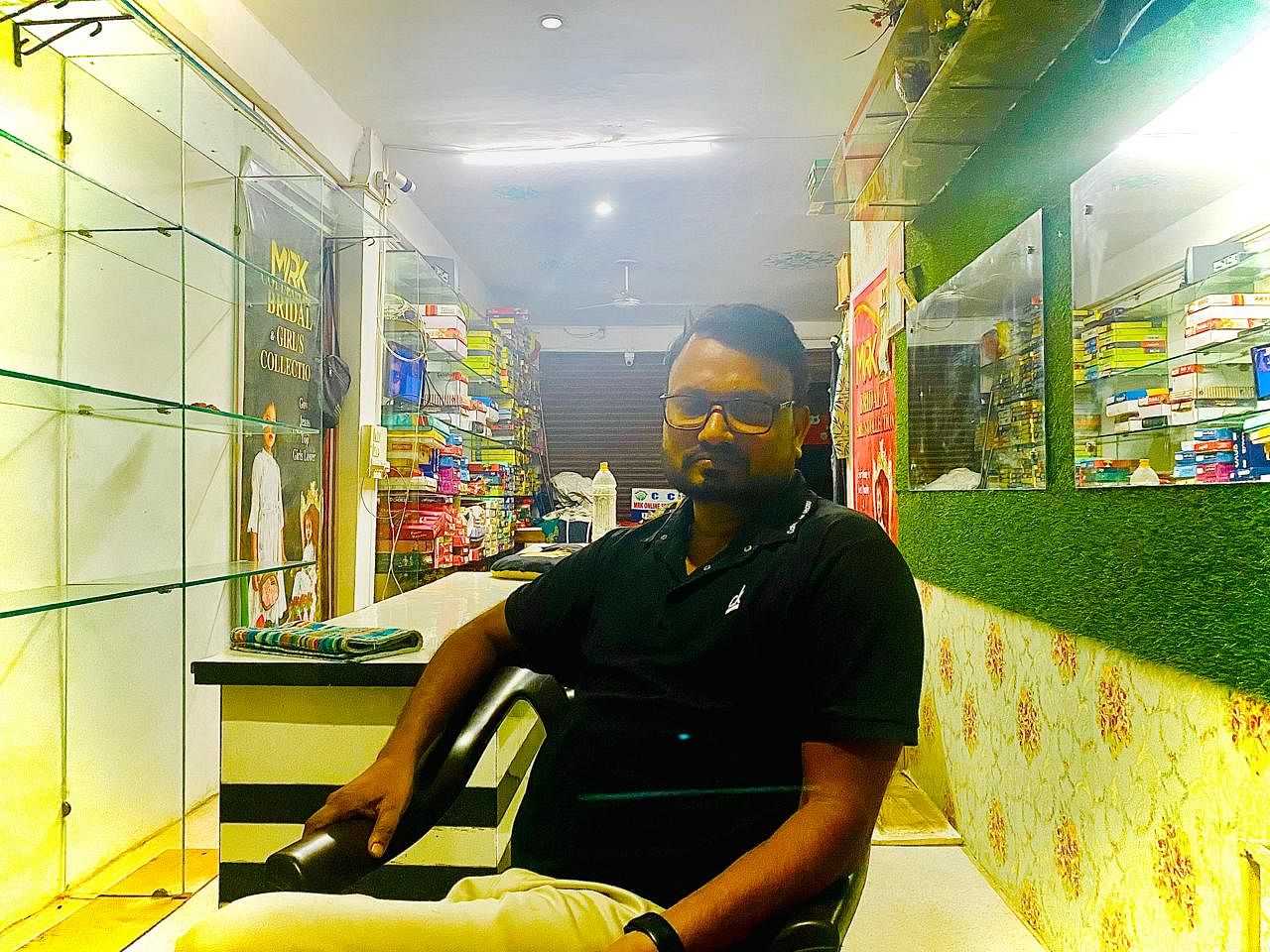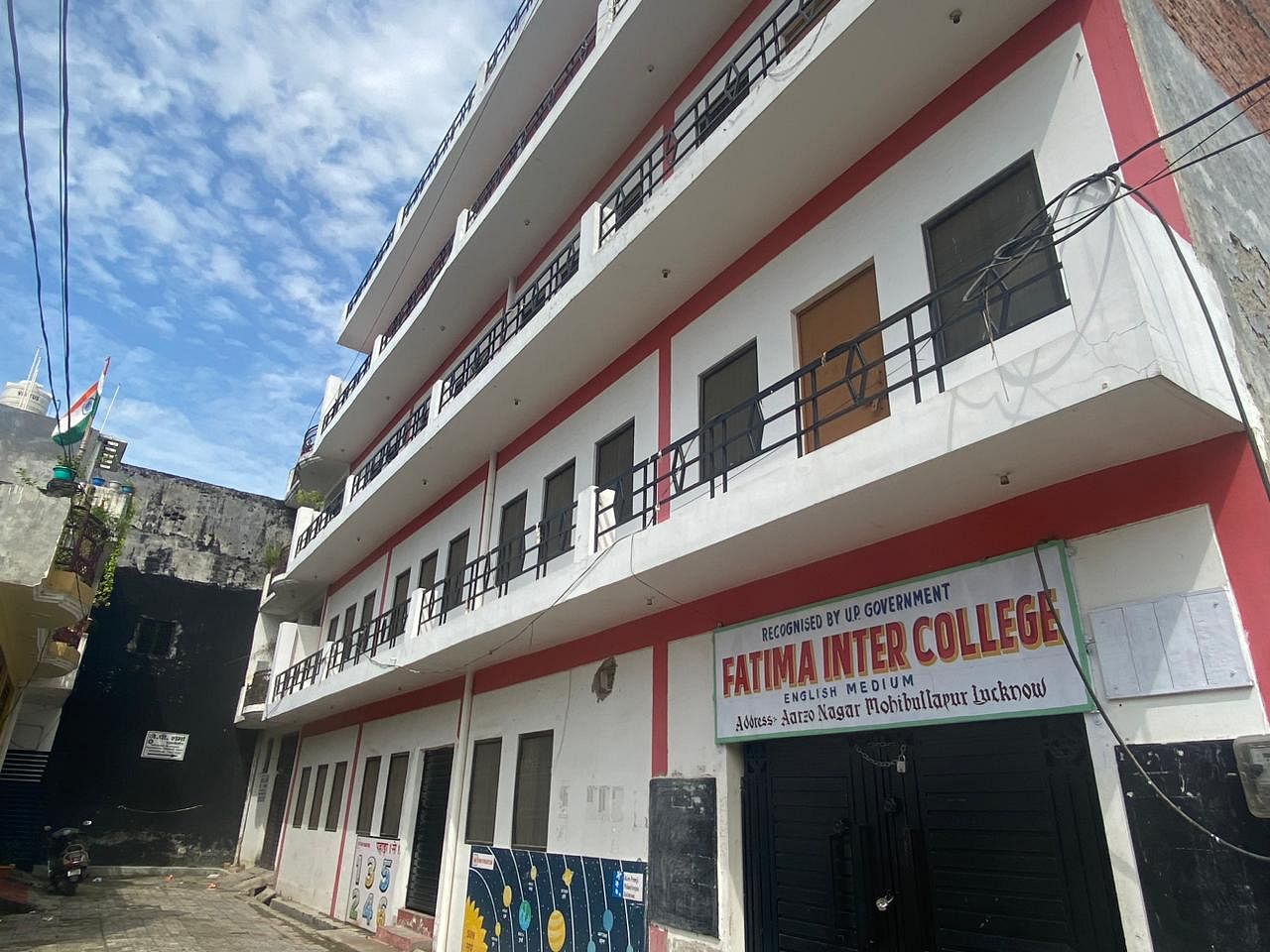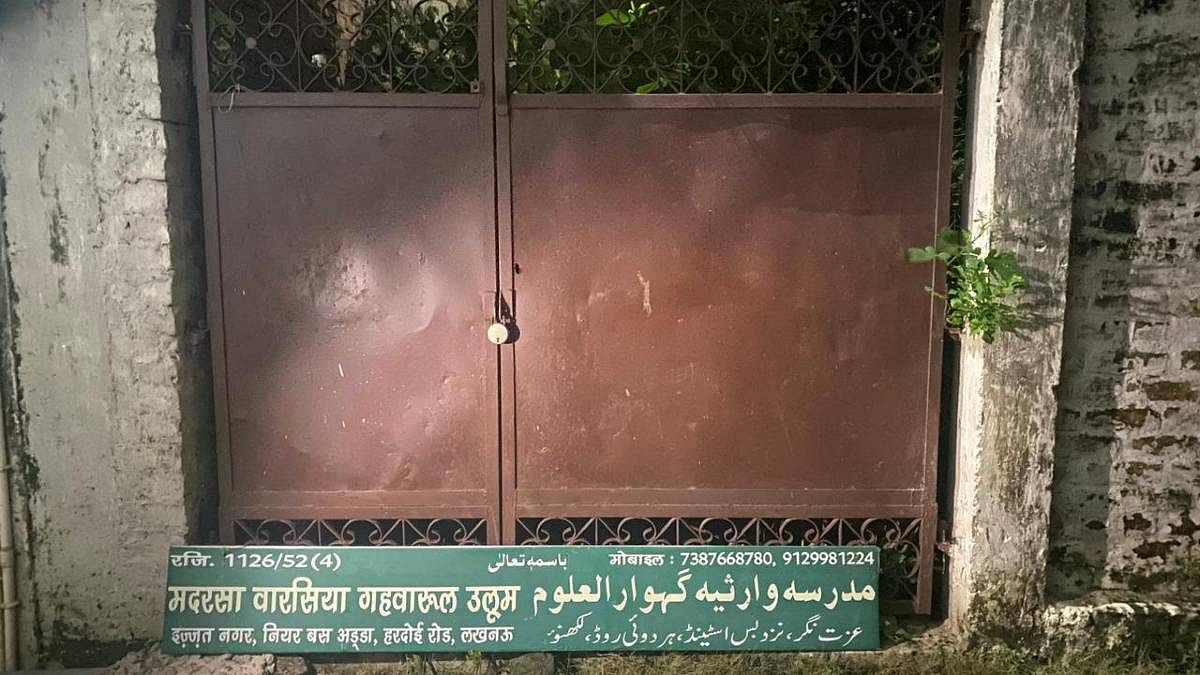“We started with 40 students. Before the closure, 80 students were studying here. When the pandemic lockdown started, students stopped coming, and we had to shut the school down. It closed completely in 2021,” Khan, a BSc graduate, told ThePrint.
“We were left with no money. Before we shut, we had been paying teachers between Rs 2,500 and Rs 3,000 from our pockets, but it became untenable after some time,” said Rafi.
Their story is similar to that of other UP madrasas.
The UP Madrasa Shiksha Parishad has received applications from 513 madrasas wanting to relinquish their government recognition. This fact came to light at a parishad meeting in September. Insiders reveal that many more of these applications—which owners or managers closing their madrasas have to file before the parishad to avoid getting notices—are flowing in.
Speaking to ThePrint, UP Madrasa Shiksha Parishad registrar R.P. Singh said the oldest applications for relinquishing government recognition are from four-five years ago. “Some of the madrasas may have already shut down, whereas some are in the process of shutting down. We will move ahead with the formal process of ending recognition,” he said.
As reasons, madrasa owners cite the lack of government support and funding, COVID-19, a high dropout rate among students due to limited opportunities after graduation, and an environment of uncertainty created by the Yogi Adityanath-led UP government’s inquiries into the functioning of madrasas.
The Centre discontinued the SPQEM in March 2022, whereas the state government discontinued the honorariums in January 2024 even as madrasas grappled with overdue teacher salaries due to poor implementation of the schemes.
Thousands of madrasa teachers claim not to have received their salaries since 2015, with the Centre not having paid its 60 percent share of the SPQEM funds between 2016-17 and 2020-2021, and the UP government pausing its SPQEM payments in 2022.
According to the UP Madrasa Shiksha Parishad officials, it has received more applications from madrasas seeking closure since the state government stopped giving the emoluments. Later in 2023, the emoluments for two months were paid, but subsequently, the honorariums started by Yadav stopped.
In 2021-22, the then Union minister of minority affairs, Mukhtar Abbas Naqvi facilitated the Centre’s release of Rs 162 crore to eight states, including UP, The Economic Times reported. However, over Rs 1,000 crore of the Centre’s share between 2017-2023 remain unpaid.
Speaking to ThePrint, O.P. Rajbhar, the minister in charge of the minority welfare and waqf development department, also said that the number of madrasas that would relinquish their recognition would increase further.
On the SPQEM, Rajbhar said, “When the central government looked into the beneficiaries, it uncovered a fraud. Several madrasas were running without proper infrastructure. People opened madrasas in their homes and appointed their family members as teachers.”
However, he admitted that not all madrasas facing closures had resorted to fraud and that the scrapping of government schemes that supported them has negatively impacted them. “The CM has written to the central government saying that madrasa teachers have become unemployed and asking it to disburse their salaries. However, no money has been provided to the state government so far,” Rajbhar said.
Madrasa teachers protested in Eco Garden, Lucknow, for 78 days between 18 December 2023 and 4 March 2024, demanding their overdue salaries and honorariums. They only ended their protest after MoS (minority affairs) Danish Azad’s assurance that the government would meet their demands after the Lok Sabha elections.
“Minister O.P. Rajbhar also assured us of the honorarium if our community helps his son win an election from Ghosi, but there has been no action so far,” said Ashraf Ali, the president of Madrasa Adhunikikaran Shikshak Ekta Samiti, which led the protests.
Meanwhile, the government has not recognised any new madrasas since 2015 despite madrasa owners raising the matter repeatedly.
A bane for teachers
At 241, the greatest number of madrasas wanting to relinquish government recognition are in Jhansi. Ambedkar Nagar is a close second, with applications for closure from 234 madrasas. UP’s capital, Lucknow, has eleven of these madrasas.
Madrasa owners in Jhansi and Ambedkar Nagar say funds are drying up, and paying salaries to teachers has become a problem
“We are left with no resources. The main requirement for running an institute is money. Had the government aid continued, we would not have shut our madrasas, but now, we have no option,” says Akram Mansoori, who ran three madrasas in Jhansi district till April but now has relinquished the recognition of two. His third madrasa, APJ Abdul Kalam Azad Memorial, is still open in Shivaji Nagar, Jhansi.
“Iqra Public Arabic, with its 40 students, and BGM Arabic School, with its 30 students, had been running from rented rooms—five for each school. It became impossible to continue to run them (without sufficient funds),” Mansoori said.
The schools opened for students in classes 1 to 5 in 2014. Now closed, their teachers Razia and Khushnuma Parveen are back to staying at home, while Firoz, Rizwana, and Nazia Hassan are teaching at small private schools at a monthly salary of Rs 2,500-3,000 each, and another teacher is giving private tuition, according to Mansoor.
The scene is similar in Ambedkar Nagar.
Mohammed Mustakin, the manager of Maulana Madni Memorial School in Iltifatganj, said he had been running four madrasas but has closed one already, and a second is also shutting down.

According to him, madrasas cater to poor students who cannot afford higher fees, with government funds necessary to keep them running.
“COVID-19 added to lingering problems and reduced the number of students studying in madrasas. While nearly 150 students had been studying in one of our madrasas in the pre-pandemic times, now only 80 students are left. With little income from fees, teachers stop coming as they need salaries,” he said.
Ashraf Ali, who led the teachers’ protests, said several teachers who lost their jobs are now engaged in private tuition while some have resorted to selling vegetables to make a living. The older teachers find it especially hard to get a new job.
“Our people are contemplating suicide. We have been protesting for eight years now. We approached MPs and MLAs, and the matter came up in Parliament and the UP assembly, but to no avail. The teachers are old; what else will they do? After returning from madrasas, several sell vegetables or give tuition,” he said.
“The scheme (SPQEM) was launched for rural areas where families could not afford to give their children modern education. Its roll-out improved education in rural areas,” he said.
Also Read: ‘SO sahab took my life,’ says UP rape complainant after taking poison. Cop suspended for ‘taking bribe’
Why students drop out
In Mujasa village in Lucknow’s Malihabad, Mohammed Rahman Khan has become a private school teacher after shutting down Rahmania Public School. A father to two children, Khan also runs a cloth shop near the village since his salary alone cannot sustain his family. Khan’s wife runs private classes for children in the room where the madrasa had been functioning.
“Most parents do not want to pay fees when they send their children to a madrasa. We charged a nominal fee. Some pay readily if the madrasa is big but do not want to pay if it is small. We thought we would buy a building if and when the number of students increased,” Khan said.
According to Khan, while lack of government funding and the pandemic played a great disabler, the alarming dropout rate of students—nearly 61 per cent between 2016 and 2021—also pushed madrasas out of business.

The UP Madrasa Shiksha Parishad recognises 16,513 madrasas. Of these, 560 receive grants from the state government. Meanwhile, 8,449 madrasas run without state recognition, according to a 2022 state government survey.
While 3,17,046 students appeared in registered madrasa examinations in 2016, the number dropped to 1,22,132 in 2021.
“The students and their guardians report several problems they face. They complain that the UP Madrasa Shiksha Parishad certificate is often insufficient to fulfil document requirements for obtaining driving licences or passports. So, many students move to the UP state board,” Khan said.
Limited opportunities for students also lead to them leaving the madrasas. “People are not so enthused about madrasa education due to a lack of employment opportunities for a child once he grows up. He will either grow up to be a maulana or take up imamat (religious service) in a masjid,” Khan said.
The UP Madrasa Shiksha Parishad provides a certificate of a maulvi to one who passes Class X and an alim certificate to one who passes Class XII, which are equivalent to the certificates of a student passing the UP board Class X and Class XII exams respectively.
The UP Madrasa Shiksha Parishad has sought an affidavit from each of the madrasas relinquishing recognition, asking for reasons.
Khan’s friend, Mohammed Rafi, has taken up a second profession, law. Besides Rahmania Public School, he runs another madrasa, the Saleheen Public School in the Mohammedan Tola of Malihabad. He now plans to convert that into a coaching centre or government school.
“There is no support for madrasas but rather excessive interference and changes in curriculum. Jitni jaanch karte hain, utni madad nahi karte (The government doesn’t help as much as it investigates). The central and state governments stopped the funds without seeking suggestions from madrasa managers. They should have asked us for proposals,” he said.
The curious picture in Lucknow
In Lucknow, of the eleven madrasas wanting to give up their recognition, six have closed, three are no longer operational at their addresses, and two are now converting into government schools.
Two of the six closed madrasas ran out of rented premises and are no longer to be found at their addresses. ThePrint visited all eleven addresses provided to the UP Madrasa Shiksha Parishad.
Madrasas not found include Lucknow Cambridge School, Daudnagar; Madrasa Cambridge College, Mampur Bana, in the BKT area; and Madrasa Iqbal Memorial Arabic College, Rahimnagar, Dudauli. Residents said they have not even heard their names.
Two others, Baitul Uloom in Buniyad Bagh and Madrasa Imadul Iman Jamitussalihat Lilbanat in Mutakkipur, had been running out of rented premises, but residents said they have closed.
Speaking to ThePrint, ex-block development council member Mohinuddin Asif from Mutakkipur village said the Madrasa Imadul Iman Jamitussalihat Lilbanat ran out of a room near the Muslim graveyard but had no proper infrastructure. He called it “a fraud.”
“It was functioning out of a room nearly ten years ago. There were three to four madrasas here, but all have shut down. The owners had been resorting to fraud. After receiving recognition from the government, they were getting money under SPQEM. They bribed officials who came for inspections and escaped action. All such madrasas should close,” he said.
Abdul Hannan, a businessman, owned the Madrasa Imadul Iman Jamitussalihat Lilbanat and at least five other schools and madrasas across Lucknow.
Four of these are relinquishing recognition, with two, including the Mutakkipur madrasa, closed now. Meanwhile, Fatima Girls College Niswan in Mohibullapur and Fatima Girls College Niswan in Pantnagar are currently functional.

Speaking with ThePrint, Hannan said he would soon get recognition from the UP state board for the madrasas in Mohibullapur and Pantnagar.
When asked about madrasas not found on the ground, Hannan said they must have been run out of rented premises.
Another madrasa—Behrool Uloom—ran out of a house in the Purana Chabutara area of Saadatganj.
When ThePrint reached the house, residents said the madrasa closed some months ago.
The house is owned by a local resident, Waqi. Speaking to ThePrint, Waqi, who owns a second madrasa in the area, said Arif, the original house owner, had been running Behrool Uloom.
When contacted, Arif’s wife Umama, who now stays in the Dubagga area, said her husband did not run any madrasa from the house, which the couple sold five years ago.
(Edited by Madhurita Goswami)
Also Read: After SIT, UP launches district-level probe into funding of Islamic schools near Nepal border

